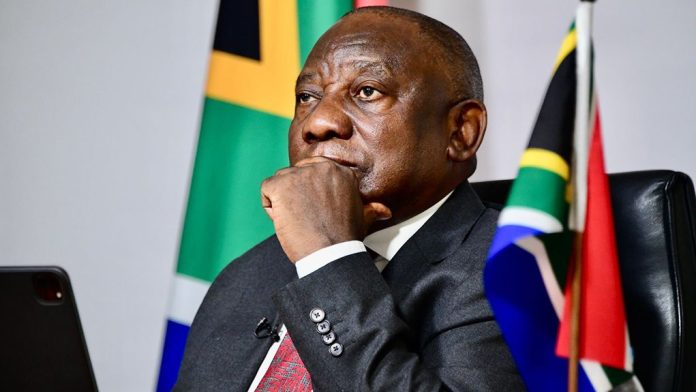President Cyril Ramaphosa has expressed concern over what the new tariffs imposed by US President Donald Trump will mean for South Africa. The country is expected to pay a 30% fee on exports to the US from 9 April 2025.
Presidency spokesperson Vincent Magwenya said these tariffs indicate the urgency for a new trade agreement with the US.
“Whilst South Africa remains committed to a mutually beneficial trade relationship with the United States, unilaterally imposed and punitive tariffs are a concern and serve as a barrier to trade and shared prosperity,” Magwenya said.
Trump linked the introduction of this reciprocal tariff on South Africa to the “bad things” going on in the country.
READ MORE: Trump’s “Liberation Day” tariffs; reciprocal tax on US imports
50 African countries specifically named in President Trump’s Tariff Trawl:
South Africa: 30%
Madagascar: 47%
Tunisia: 28%
Egypt: 10%
Botswana: 37%
Morocco: 10%
Algeria: 30%
Lesotho: 50%
Mauritius: 40%
Kenya: 10%
Nigeria: 14%
Namibia: 21%
Ethiopia: 10%
Togo: 10%
Ghana: 10%…— Sherwin Bryce-Pease (@sherwiebp) April 2, 2025
This is on the back of apparently positive talks between delegations from both countries on “bilateral priorities” earlier this week. During these talks, the misconceptions on land expropriation were discussed.
“We believe that these dialogues will assist to refine the current administration’s understanding of South Africa’s position on critical matters, fostering a more nuanced perspective… These fruitful engagements will be carried out at various levels of government pursuant to the 7 February Executive Order issued by the President of the United States,” said International Relations (DIRCO) spokesperson, Chrispin Phiri.
Reaction to new tariffs
Afriforum’s CEO, Kallie Kriel, blamed the ANC for the newly imposed tariffs, which he claimed was higher than any other country. Referring to the land expropriation issues, Kriel said this is the result of the ANC-led government not addressing grievances on that matter.
“To have avoided these punitive measures, it was necessary to openly identify the problems and find solutions through a change in direction in South Africa. [Afriforum] will therefore continue to work toward such a change,” said Kriel on X.
ANC leaders and the ANC-led government must be held directly responsible for the fact that the United States and President @realDonaldTrump has punished South Africa by imposing significantly higher import tariffs on the country than on most other nations. South Africa and its… pic.twitter.com/3m41SphaFW
— Kallie Kriel (@kalliekriel) April 3, 2025
In response, DIRCO’s Head of Public Diplomacy, Clayson Monyela, said South Africa’s fee is lower than that of other African countries – which refutes Kriel’s claim.
I should be ignoring you but I have time. There’s no ANC in Lesotho, Madagascar and Botswana but they got 50%, 47% & 37% respectively….higher than 🇿🇦. This fact alone collapses your entire argument. https://t.co/6itlHhD4LC
— Clayson Monyela (@ClaysonMonyela) April 3, 2025
Meanwhile, Minister of Trade, Industry and Competition, Parks Tau, wants to get clarity on how the US came to the 60% (which was “discounted to 30%) tariffs on South Africa. Tau said his department intends to hold talks with the US on what future trade relations would look like.
[ON AIR] Minister of Trade, Industry and Competition, Parks Tau says he is committed to engage with the US to seek clarity over the 30% US tariffs imposed by Donald Trump. #eNCA #DStv403. pic.twitter.com/M4O1dInZYI
— eNCA (@eNCA) April 3, 2025
These “Liberation Day” tariffs are among a series recently implemented by Trump. Last week, a 25% tariff on automobiles and related parts exported to the country was announced. The National Association of Automobile Manufacturers of South Africa said it is engaging with trade partners and government authorities on the impact this would have on its export relationship with the US.


